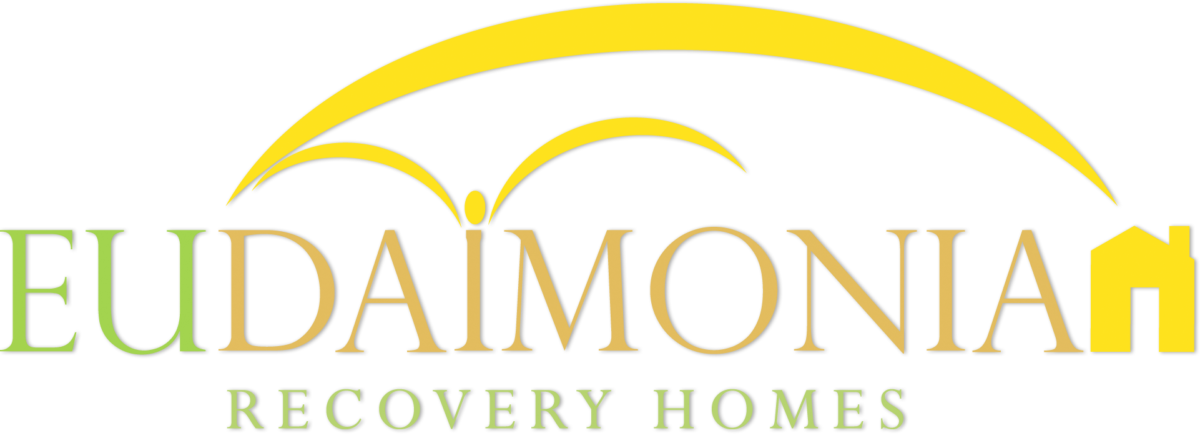The Benefits of Yoga for Addiction Recovery: A Las Vegas, Nevada Sober Living Activity
Table of contents
- The Physical and Mental Benefits of Yoga in Sobriety
- Enhancing Mindfulness and Stress Management through Yoga
- Building a Supportive Community in Sober Living Facilities
- The Role of Yoga in Maintaining Long-Term Sobriety
- Incorporating Yoga into a Comprehensive Recovery Plan
- Sober fun places to visit in Las Vegas, Nevada
- Eudaimonia Can Help Keep You on the Path to Recovery
Yoga has long been recognized as a beneficial practice for physical and mental well-being, but its benefits extend far beyond that. In recent years, yoga has emerged as a powerful tool for those in addiction recovery, particularly in sober living environments.
In Las Vegas, Nevada, sober living homes are using yoga to help people heal and stay sober. Yoga is part of their programs for holistic healing. Yoga helps with stress, anxiety, mindfulness, and self-awareness in addiction recovery. The benefits are significant.
This article will talk about how yoga can benefit people who are working towards sobriety and improving their overall well-being. The focus will be on how yoga can be beneficial in a sober living environment in Las Vegas, Nevada.
The Physical and Mental Benefits of Yoga in Sobriety
Incorporating yoga into a sober living routine can be incredibly beneficial for individuals in addiction recovery. Yoga improves physical health by increasing flexibility, strength, and overall fitness. It also promotes a healthier mindset.
The practice of yoga encourages mindfulness, self-reflection, and stress reduction, all essential for maintaining sobriety. By connecting the mind and body, people can feel calm and balanced, reducing cravings and triggers linked to addiction.
People who regularly practice yoga in sober living homes may experience significant improvements in both their physical and mental well-being. This can lead to an overall sense of feeling much better. This helps them on their path to recovery and gives them tools to handle any challenges that come up. In Las Vegas, Nevada, adding yoga to a sobriety routine can help people rebuild their lives and maintain recovery.
Enhancing Mindfulness and Stress Management through Yoga
In the journey of addiction recovery, individuals must prioritize mindfulness and stress management. By incorporating yoga into their routine, individuals are able to harness its transformative powers to cultivate these essential skills.
Yoga helps people focus on the present moment by paying attention to their breathing and movements. This mindfulness can then be applied to everyday life. Using meditation and deep breathing can help people in recovery handle stress, anxiety, and triggers that could hinder their progress.
Regular yoga practice builds physical strength and flexibility, while also fostering inner peace and resilience in individuals. This new inner strength helps people overcome challenges in recovery and supports their journey to long-term sobriety.
Building a Supportive Community in Sober Living Facilities
Yoga helps people in recovery from addiction, whether they do it alone or in a group. It has many benefits. Yoga at a sober living facility can improve physical and mental health while also creating a supportive community among residents.
Taking yoga classes together can help residents form strong bonds and feel connected, which is important for staying sober. Residents can feel understood, supported, and encouraged by connecting with others who are also recovering.
This connection is special because they share similar experiences. It helps them feel less alone in their journey towards recovery. Sharing experiences with others can provide a sense of community and belonging.
Feeling like part of a community can help residents stay motivated and inspired as they work towards staying sober. By practicing yoga together, residents can strengthen their relationships, uplift each other, and support each other in their recovery.
The Role of Yoga in Maintaining Long-Term Sobriety
Consistency is key in maintaining long-term sobriety, and yoga can play a significant role in this journey. Yoga practice helps people in recovery by reducing stress and cravings, while also improving self-awareness and emotional control.
Residents in a sober living facility can improve their recovery by adding yoga to their daily routine. Yoga techniques can help deal with life’s challenges without turning to drugs. Mindfulness and grounding learned in yoga are powerful tools.
Embracing yoga as a sustainable practice can contribute to a holistic approach to sobriety, promoting physical, mental, and emotional well-being for lasting recovery. Yoga can help people recover their strength and flexibility after substance abuse. It can also improve mental health by healing past traumas and promoting a positive mindset for the future.
Practicing yoga with others in recovery can help create a strong sense of community and support. This can also help build connections and a sense of belonging. These connections and sense of belonging are important for staying sober in the long run. Overall, incorporating yoga into addiction recovery can be a powerful tool for individuals looking to maintain sobriety and improve their overall well-being.
Incorporating Yoga into a Comprehensive Recovery Plan
Incorporating yoga into a comprehensive recovery plan can have numerous benefits for individuals in addiction recovery. Residents can improve their physical, mental, and emotional health by doing yoga daily. It can help them on their path to recovery from addiction.
By doing yoga, therapy, and other methods, people can improve mindfulness, reduce stress, and strengthen coping skills. This method helps people feel balanced and self-aware. It also gives them the strength to overcome challenges. This way, they can avoid relying on unhealthy habits.
Adding yoga to a recovery plan can help people stay sober and live a healthy, fulfilling life in the long term. Yoga can improve the chances of maintaining sobriety and overall well-being.
It is beneficial for individuals to incorporate yoga into their recovery journey. Yoga can help people stay sober and live a fulfilling life for a long time. Yoga helps improve well-being and recovery by connecting the mind, body, and spirit.
Sober fun places to visit in Las Vegas, Nevada
Las Vegas is known for its vibrant nightlife and party atmosphere, but for those looking for sober fun, there are still plenty of interesting places to explore in the city. One option is the Neon Museum, which showcases old neon signs from various Las Vegas hotels and casinos. Visitors can take guided tours and learn about the history of these iconic signs.
Another sober-friendly activity is visiting the Bellagio Conservatory and Botanical Gardens. This indoor garden features rotating displays of flowers, plants, and sculptures that are sure to impress nature lovers. The gardens are free to enter and offer a peaceful respite from the hustle and bustle of the Las Vegas Strip.
For those interested in art and culture, the Arts District in downtown Las Vegas is a great place to explore. The area is home to numerous galleries, boutique shops, and restaurants, making it a perfect spot for a leisurely afternoon stroll.
Nature enthusiasts may also enjoy visiting Red Rock Canyon, located just a short drive from the Las Vegas Strip. This national conservation area offers stunning views, hiking trails, and opportunities for rock climbing.
Eudaimonia Can Help Keep You on the Path to Recovery
Eudaimonia offers excellent recovery programs with tailored care. In these programs, individuals can develop positive coping skills with the tools necessary to maintain sobriety. Eudaimonia even provides tailored care based on gender and orientation. We also include supervised, short-term housing to provide support for newly sober individuals.
But no matter where you are in your recovery, Eudaimonia Sober Living Homes can provide support every step of the way. We have facilities for sober living in Austin, Houston, and Colorado Springs ready to assist you in living your sober lifestyle. Call Eudaimonia Sober Living Homes at (888) 424 – 4029 for more information on the admissions process and current room availability.

